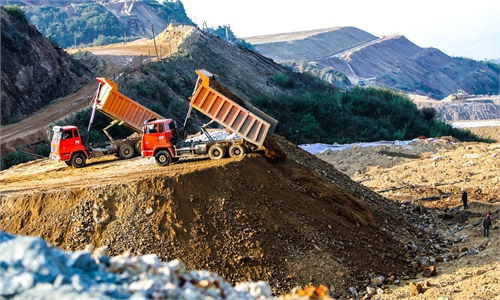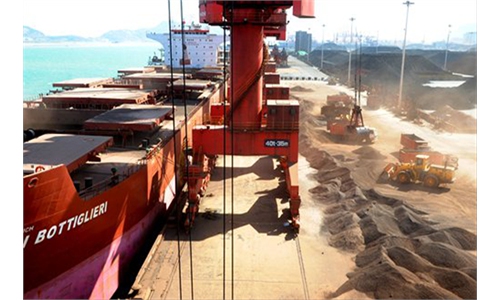COMMENTS / EXPERT ASSESSMENT
Domestic rare-earth woe shows why US should end decoupling

Illustration: Tang Tengfei/GT
The US and its allies, which plan to spend big to counter China's dominance in rare-earth sector, seem to have encountered a bigger problem that money can't solve: an acute shortage of companies and projects.
Rushing to secure domestic supplies of rare earths and to develop the capability to process them, the Pentagon and Department of Energy (DOE) have put money directly in several companies, but some in the industry said they are baffled by the investments because of recipients' links to China or lack of an established record, The Wall Street Journal reported on Monday.
The vulnerability of the US' rare-earth industrial chain exposed by real world conditions is obviously far more severe than the results of the 100-day critical supply chain review announced by the Biden administration earlier this month. Judging from the present predicament, if the US and its allies want to rebuild a rare-earth industrial chain that is completely independent from China, they have quite a long way to go.
Some politicians in the US have long been wishfully pushing so-called rare-earth independency. The strategic role of rare earth resources to high-tech and defense industries has been repeatedly cited as an argument to advocate decoupling amid the tension between the US and China. Policymakers in Washington seem convinced that to win competition from China in key emerging industries in the future, the US must unite its allies to completely cut connections with China in the rare earths industry.
Based on this zero-sum game mindset, while expanding investment in projects at home to boost production capacity, the US also pins its hopes on its allies abroad. At the Quad summit in March, the US, Japan, India and Australia also made it a key topic to discuss strengthen rare-earth cooperation. But so far, the US' plan has run into great difficulties at home and abroad. Studies show that it would take the US and its allies at least a decade to create from scratch a non-Chinese rare earth supply chain.
In fact, overly politicizing economic issues are doomed to fail. While American politicians choose to take a radical approach to interfere with economic cooperation for political reasons, American companies have made completely different choices. In 2019, when the Trump administration was pushing to break the country's dependence on Chinese supplies of critical minerals, the US companies have imported more rare-earth products from China. In 2019, China's exports of rare earth products to the US came in at about 153,000 tons, reaching $79.29 million.
Any moves the US politicians take to hurt China on the rare-earth issue are bound to hurt American companies in the end. After decades of development, the international division of labor in the field of rare earths has become more mature and reasonable. China and the US enjoy mutual beneficial cooperation in the field.
Facing the US' trade war and technology crackdown, China has never chosen to weaponize rare earth. It is hoped that the US government can deal with economic issues in accordance with economic rules. Political mutual trust can only be enhanced through mutually beneficial cooperation. The US should stop going further on the wrong path of harming others while not benefiting itself.
The author is director of the research department at the National Strategy Institute at Tsinghua University. bizopinion@globaltimes.com.cn



